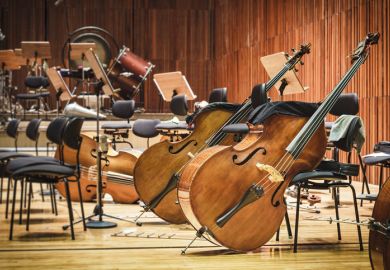In this book, Roger Scruton sets out a comprehensive philosophy of music. He begins by considering the basic materials of music and the philosophical problems raised by our experience of it. He then moves on to consider questions such as whether music has meaning, the usefulness of the analogy between music and language, the role of tonality in music, the validity of some common methods of analysing and describing music and the cultural role of music. Most of the book is devoted to careful argument about the philosophy and analysis of music; a critique of popular music is not central to the argument, as the publicity suggests.
It is central to Scruton`s view of music that there is a universal way of listening to it and that music is an expressive art. What exactly "expression" means when applied to music is a major theme of the book. Scruton argues at some length and with some complexity for his own answer to this question, beginning with the supposition that mere sound can only be transformed into "tone" by a rational being who can experience in music an elusive phenomenon such as movement, and hence melody and rhythm, and who can construct a unity out of something that is constantly changing. These things are very mysterious indeed, and Scruton grapples with various attempts to explain them.
This line of inquiry could be very dry, at least for those without a strong interest in the relevant philosophical problems. However, what distinguishes Scruton's discussion of music is his grasp of what happens when we listen to music, with the exercise of our imaginations being not just something that can enhance our understanding of music but something that is instrumental in transforming the relatively dull stuff of sound into something that can be deeply meaningful. Metaphor has a central role; it is not merely a useful way of describing music but is essential to our perception of it. Just think of trying to hear music without recourse to the ideas of "high" and "low". Scruton argues that this may be possible, but it is unlikely that someone hearing music with the aid of different metaphors would hear music in the same way as we do. This acknowledgement of the role of metaphor in our experience of music is backed up by a philosophical theory of metaphor, drawing on its application in the visual arts.
The metaphors of "high" and "low" are only the most basic in a series of metaphors that are indispensable to our construction of meaning - and Scruton argues that music does have meaning. This is identified as a tertiary quality of music. Thus a work that we may describe as "sad" does not possess "sadness" as a primary quality nor even a secondary quality (like having the colour red, which can be seen by any creature with sensory powers); the sadness of a melody can only be experienced by someone with "intellect, imagination, perhaps even self-consciousness".
Scruton disagrees with those, like Eduard Hanslick, who argue that music means nothing or "means only itself" (whatever that means). One of the interesting features of a tertiary quality is that we can be argued out of perceiving it or into perceiving it, and hence the value of the criticism of music. And the experience of most listeners surely bears this out; who has not at some time heard something differently because someone else has guided them in that direction?
But Scruton is sceptical that we can be persuaded to hear music in any way; he adopts the unfashionable position of arguing that tonality, in one or all of its manifestations, provides the underlying framework that we use to turn sound into musical meaning; when we hear music that attempts to be atonal we cannot help but interpret it, to some extent, within the tonal framework. Scruton subjects to a detailed examination theories of music such as those of Milton Babbitt and Allen Forte, which attempt to justify a totally different way of hearing music, the thrust of his argument being that there are certain givens in the way we respond to music that are incoercible.
This is but an inadequate summary of a wide-ranging argument that is illustrated with analysis of many musical examples, including some composed by Scruton. This book will be of interest to anyone with a serious interest in music, and it is compulsory reading for anyone whose main area of interest is the aesthetics of music.
Barry Mitchell works for the school of distance learning, Rose Bruford College.
The Aesthetics of Music
Author - Roger Scruton
ISBN - 0 19 8 816638 9
Publisher - Clarendon Press
Price - £50.00
Pages - 530
Register to continue
Why register?
- Registration is free and only takes a moment
- Once registered, you can read 3 articles a month
- Sign up for our newsletter
Subscribe
Or subscribe for unlimited access to:
- Unlimited access to news, views, insights & reviews
- Digital editions
- Digital access to THE’s university and college rankings analysis
Already registered or a current subscriber?



